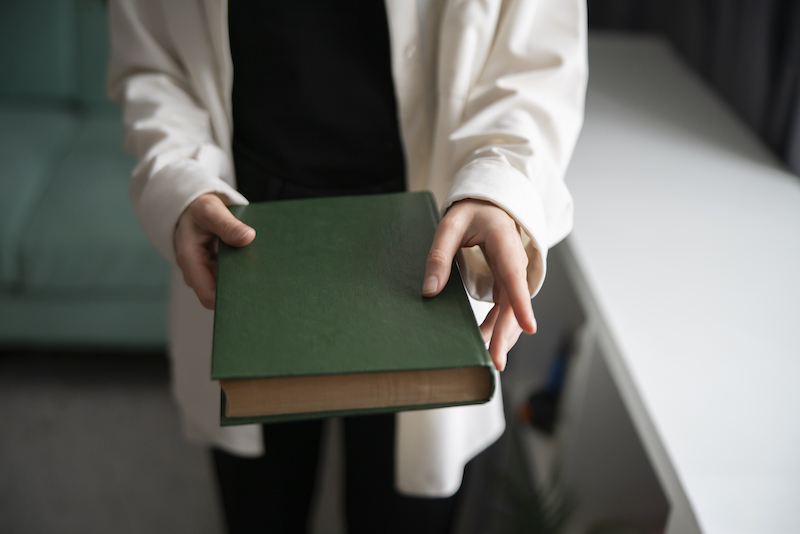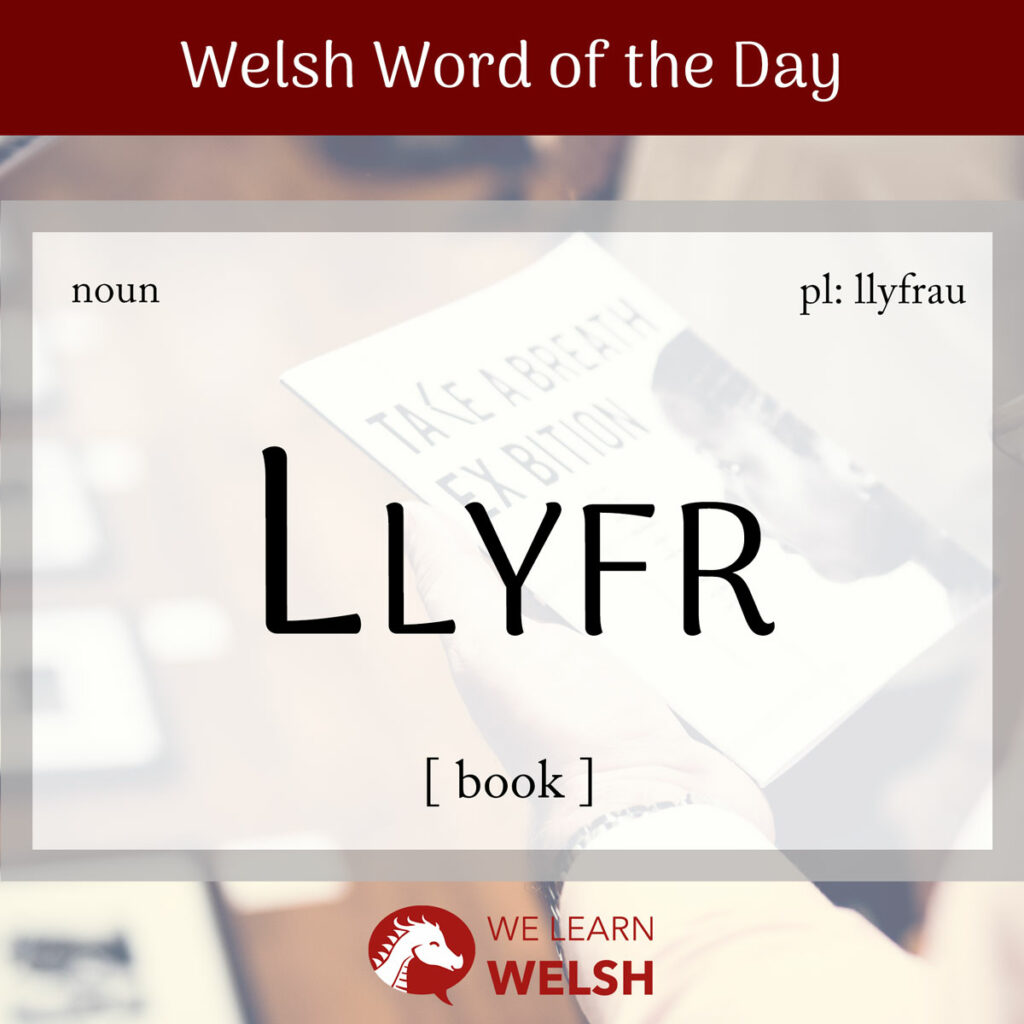There’s nothing better than curling up on the sofa with a nice hot paned (cuppa) and a good llyfr (book). In fact, llyfr (plural: llyfrau) is today’s Welsh word of the day.
llyfr
book
Llyfr originated as the proto-Brythonic *llɨβr, also meaning book. This is a borrowing from the Latin root liber, which we see in words like library (in Welsh, llyfrgell) and the Italian libro (book).
There’s quite a bit of variation in pronunciation. What I’ve shared above is likely the most standard, but personally, I would pronounce it quite differently. This is very common in colloquial speech, especially in the South. Here’s how I would say it:
In general, people vary in how they pronounce the y—some say it like the i in bin, others like the u in bun. There’s also variation in whether it’s pronounced as one syllable or two. Feel free to land anywhere on this spectrum, but be careful to avoid llafar, which is a completely different word meaning spoken.
Llyfr only responds to the soft mutation, becoming lyfr, as in dy lyfr di (your book).
Soft mutation
lyfr
Nasal mutation
N/A
Aspirate mutation
N/A
As it’s a masculine noun, it doesn’t mutate after the definite article. The book is y llyfr.
Before llyfrau as we know them today, ysgrifennu (writing) was often done on llechi (tablets) or, a bit later, scrolls made of brwynbapur / papyrws (papyrus). The development of papur (paper) was followed by the invention of rhwymo (binding) and later the gwasg argraffu (printing press), allowing for the mass production of llyfrau. Great news for those of us who love to darllen (read)!
There are many different genres of llyfr, like ffuglen (fiction) and ffeithiol (non-fiction). Llyfrau ffuglen (fiction books) are called nofelau (novels) and this category can be further sub-divided into multiple ffurfiau (genres), like rhamant (romance), ffuglen wyddonol (science fiction) and dirgelwch (mystery).
Awduron (authors) often make their name in a particular ffurf. Some also specialise in ysgrifennu (writing) and darlunio (illustrating) books for plant (children), often llyfrau lluniau (picture books).
I really like reading what’s often called ffuglen lenyddol (literary fiction), but I also have to admit I have a soft spot for nofelau arswyd (horror novels). What kind of llenyddiaeth (literature) keeps you turning the tudalennau (pages)?
Dw i’n hoff iawn o lyfrau doniol.
I really like funny books.

Here are some of the verbs you’ll most often need to use with the noun llyfr.
- darllen llyfr (to read a book)
- ysgrifennu / sgwennu llyfr (to write a book)
- mwynhau llyfr (to enjoy a book)
- dewis llyfr (to choose a book)
- cael benthyg llyfr (to borrow a book)
- prynu llyfr (to buy a book)
Benthyca (another way to say borrowing) dy lyfrau (your books) from the llyfrgell instead of choosing to prynu from the siop lyfrau (bookshop) is a great way to reduce your environmental impact and save money. Another option is e-lyfrau (e-books).
However you pick out your next read, always remember that nid wrth ei glawr y mae adnabod llyfr (never judge a book by its cover, in Welsh literally it’s not by its cover that a book is known).
Clawr means a book’s cover, and the plural is cloriau. Llyfrau can be either clawr meddal (paperback) or clawr caled (hardback). Another useful piece of book-vocabulary is nod llyfr (bookmark), though some people just fold over the corner of the tudalen / ‘dalen (page), much to my disapproval.
Dyla i ddim prynu llyfr newydd arall!
I shouldn’t buy another new book!
In English, we refer to someone as being in someone’s good books to mean that they’re in favour with that person. Apparently in Welsh all books are good books because the equivalent expression is just bod yn llyfrau rhywun (being in someone’s books).
Aside from darllen, llyfrau can be used for all sorts of things. Let’s look some more at the different mathau o lyfr (types of book).
- llyfr nodiadau = notebook
- llyfr sieciau = cheque book
- llyfr lloffion / llyfr sgraps = scrapbook
- teithlyfr = guidebook
- gwerslyfr = schoolbook / exercise book
- llyfr coginio = cookbook
- llyfr emynau = hymnbook
Actually, the llyfr I’m reading at the moment happens to have the word llyfr in its title! It’s Llyfr Glas Nebo (“The Blue Book of Nebo”) by Manon Steffan Ros, a nofel dystopaidd (dystopian novel) that won the Prose Medal at the Eisteddfod in 2018. I’d definitely recommend it so far!
Pa lyfr wyt ti’n (ei) ddarllen ar hyn o bryd? (What book are you reading at the moment?)

